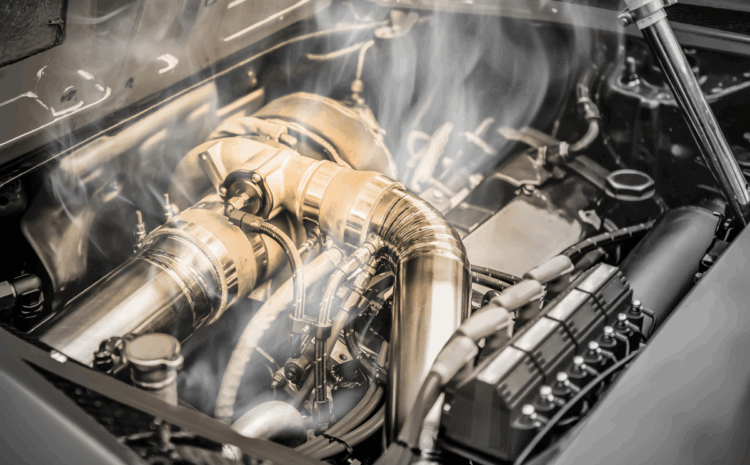
Diesel engines are built to last, but even the toughest machines wear down over time. Catching problems early can save you thousands in repairs and reduce the risk of a complete breakdown, while ignoring warning signs can lead to expensive repairs.
At A1 Diesel, we know the warning signs to look out for. If your diesel engine is acting up, here are the eight most common signs of diesel engine failure.
1. Hard Starting or Failure to Start
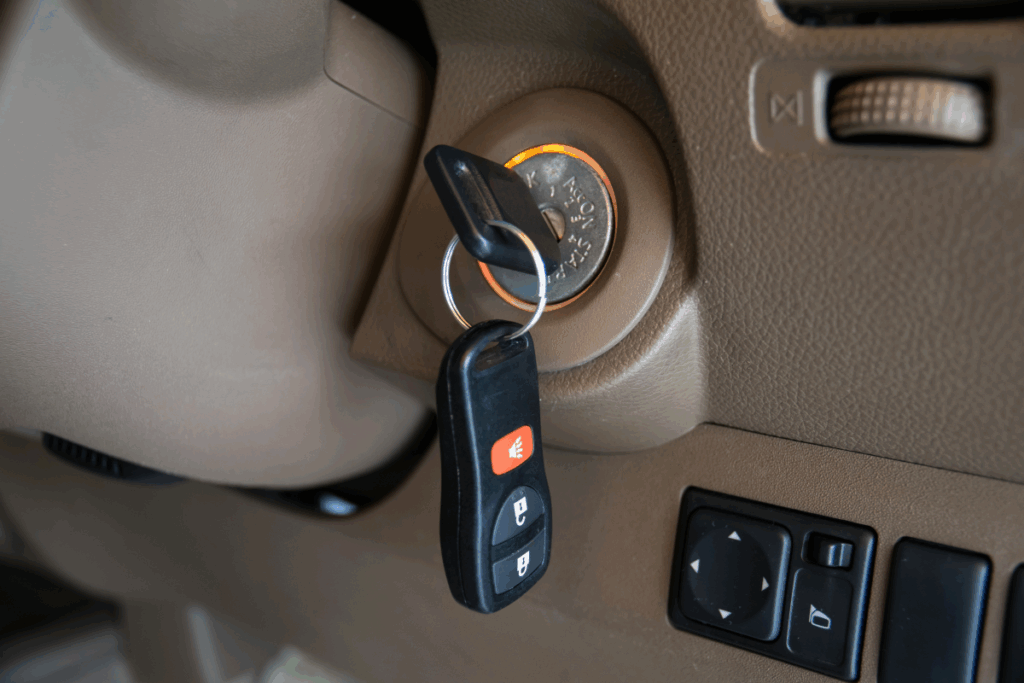
One of the first and most obvious signs of diesel engine trouble is difficulty starting or no start at all.
A properly functioning diesel engine should crank quickly and fire up without hesitation, even in colder temperatures. However, cold weather can make starting more difficult and may reveal underlying engine issues.
Common causes include:
Weak or dead battery
Diesel engines need more power to start than gasoline engines. A weak battery may have just enough juice to turn the engine over but not enough to get it running. In colder weather, battery performance drops even further.
Glow plug failure
Glow plugs are essential in cold starts, especially during winter. If one or more glow plugs aren’t working, your engine may crank but won’t ignite the fuel-air mixture efficiently, leading to delayed or failed starts.
Low fuel pressure
Insufficient pressure in the fuel system prevents diesel from reaching the injectors at the required rate. This could be due to a faulty fuel pump, clogged fuel filter, or worn pressure regulator.
Fuel contamination
Water, dirt, or microbial growth (often called diesel bug) in your fuel tank can block filters, damage injectors, and prevent proper combustion. Contaminated fuel is one of the leading causes of no-start conditions in diesel engines.
If it’s your glow plugs or fuel delivery causing the problem, you need professional help. Our expert team specialises in Fuel System Repairs that get your engine firing right.
2. Excessive Smoke from the Exhaust

Diesel engines naturally produce more exhaust than petrol engines, but too much smoke, or smoke that’s the wrong color, can point to serious trouble. Too much exhaust can indicate underlying engine issues such as incomplete combustion or excess fuel entering the system.
- Black smoke from the exhaust: This usually means the engine is burning too much fuel. Black smoke is often a result of incomplete combustion and excess fuel in the combustion chamber.
- Blue smoke from the exhaust: Indicates oil is burning in the engine, which can happen when oil remains on the cylinder wall due to worn components.
- White smoke from the exhaust: Usually means there is unburned fuel or coolant is leaking into the combustion chamber.
Worn cylinder walls can lead to increased blow-by, oil leaks, and poor combustion, all of which contribute to visible exhaust changes.
Oil mist entering the combustion chamber can also cause engine runaway and excessive smoke. Don’t ignore visible exhaust changes. They can lead to bigger problems fast.
3. Loss of Power or Poor Performance
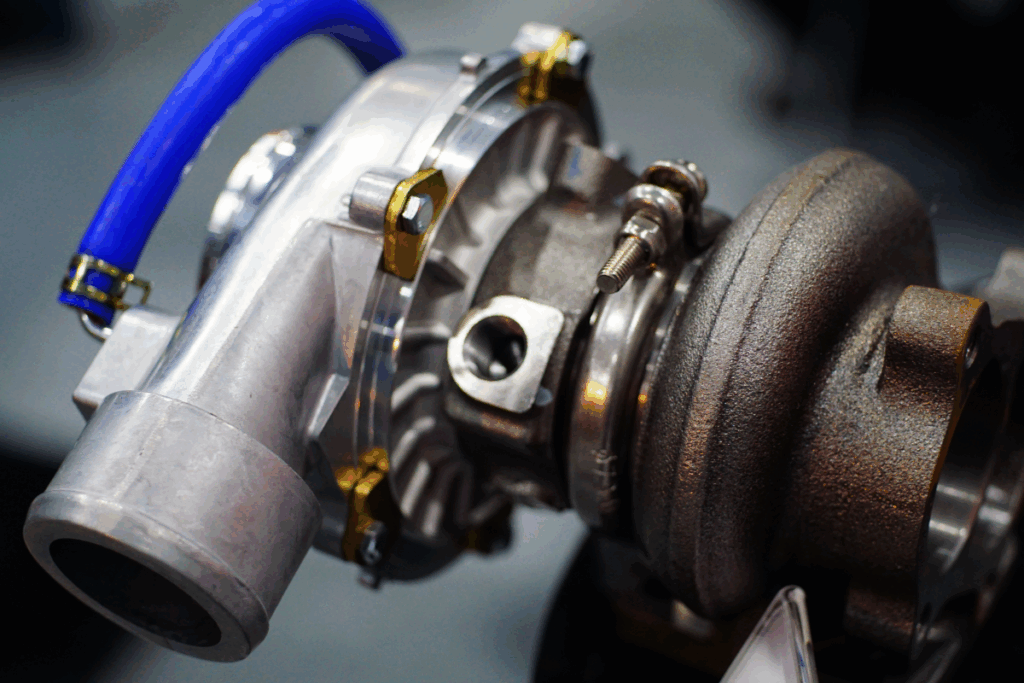
Feeling like your diesel truck or equipment has lost its muscle? If your engine struggles to accelerate, maintain speed under load, or just doesn’t feel as responsive as usual, it’s likely a sign of diesel engine failure in the making. A loss of engine power or reduced power can indicate serious internal issues that need immediate attention.
Turbocharger failure
Turbocharger issues can affect the flow of compressed air, reducing engine power. The turbo boosts airflow into the engine, giving it that extra power and efficiency. If the turbo is worn, leaking, or has a failed actuator, your engine will feel noticeably underpowered—especially during acceleration or climbing hills.
Blocked fuel filters
Over time, fuel filters can clog with debris, rust, or algae from contaminated diesel. Restricted fuel flow can lead to inefficient use of diesel fuel and reduced fuel economy. Regular fuel filter maintenance is key.
Faulty fuel injectors
Diesel engines rely on precise fuel injection. If one or more injectors are leaking, clogged, or misfiring, it throws off the air-fuel ratio. Worn piston rings can also cause poor combustion and loss of power.
This results in rough running, lower power output, and unburnt fuel (which often shows up as black smoke from the exhaust). Damaged fuel injectors can cause poor performance and black smoke, signaling incomplete combustion and potential engine damage.
Air intake restrictions
Engines need clean air to breathe. A dirty air filter or damaged intake hose can choke the engine, reducing performance and causing poor combustion. You may also hear unusual whistling or hissing sounds under the hood.
Feeling sluggish? This often points to clogged filters or a failing turbo. Our Routine Maintenance services keep your engine running at peak power.
4. Knocking or Unusual Noises
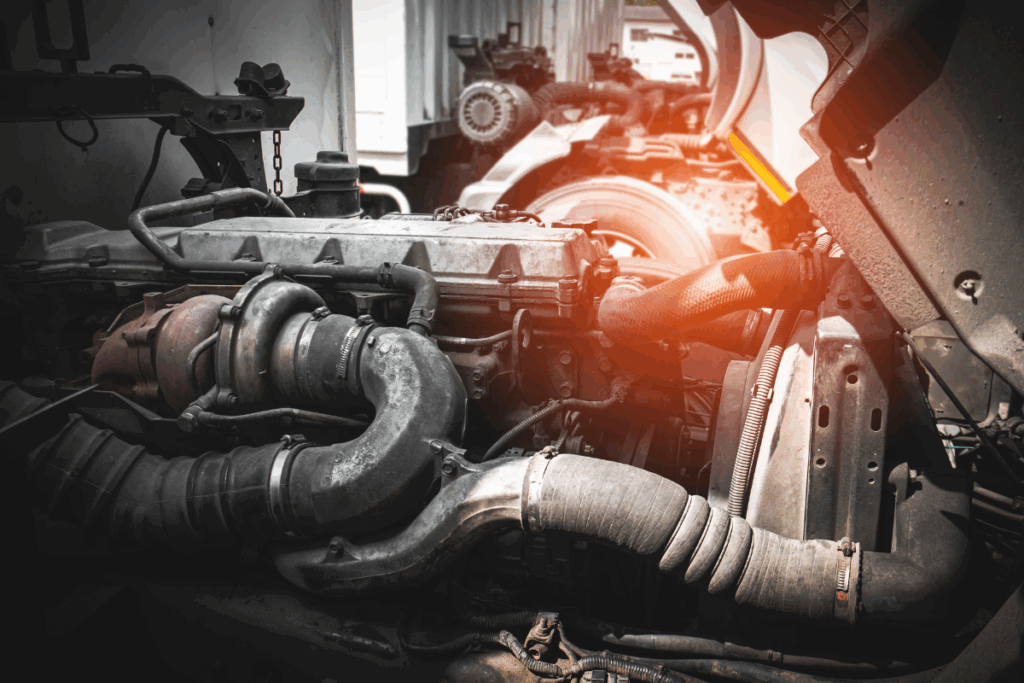
A knocking diesel engine is a loud engine. Engine knocking is often a sign of serious internal issues, such as oil contamination or worn components. These sounds often come from deep inside the motor and usually signal internal wear or damage.
Pay attention to:
- Pinging or knocking when accelerating
- Rattling at idle
- Hissing from air leaks
- Tapping from loose components
Strange noises are never a good sign. If your diesel sounds different, it’s time for a professional inspection.
5. Poor Fuel Economy
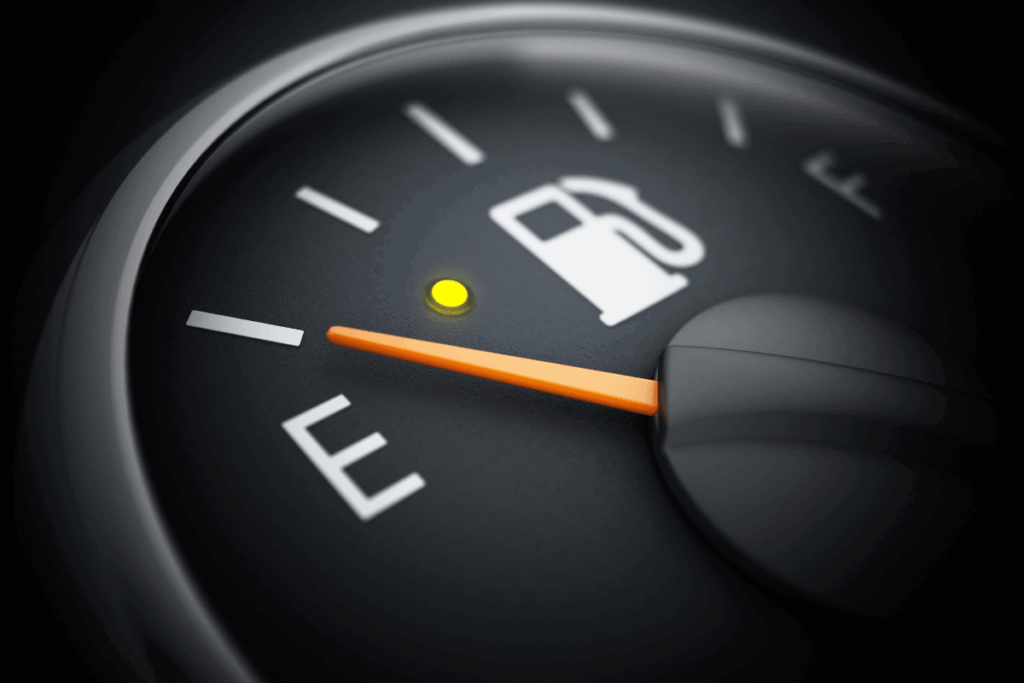
Diesel engines are known for their efficiency, so a sudden drop in fuel mileage usually means something’s wrong. If you’re refuelling more often than usual, your engine could be struggling behind the scenes.
Common causes include faulty fuel injectors, clogged air or fuel filters, and a worn turbocharger. Any of these can force the engine to work harder and burn more fuel. Even timing issues can affect how efficiently your engine runs.
Fuel costs add up fast. Sorting out poor economy early helps protect both your wallet and your engine’s long-term health.
6. Engine Overheating
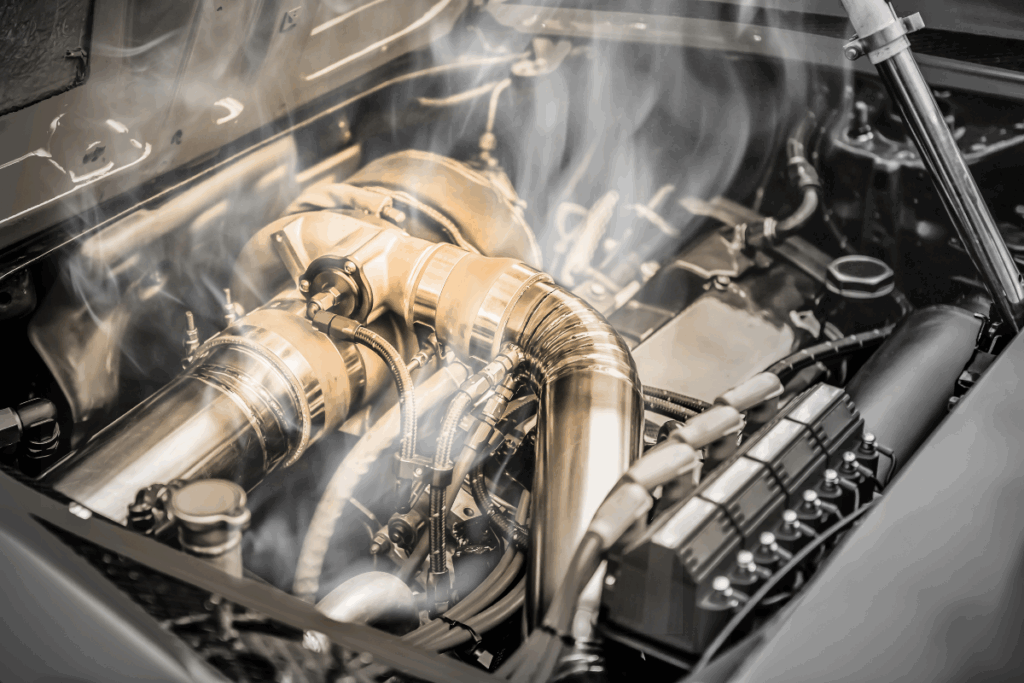
Overheating is one of the most damaging issues for any diesel engine. It can lead to warped cylinder heads, blown head gaskets, or complete engine failure.
Watch for:
- Temperature gauge rising beyond normal: Most vehicles have a dashboard temperature gauge that should sit in the middle when everything’s running smoothly. If the needle starts creeping into the red zone, pull over as soon as it’s safe.
- Coolant loss or leaking: Coolant (or antifreeze) helps regulate engine temperature. If your reservoir is empty or there’s a visible puddle under the vehicle, your system isn’t able to cool the engine properly.
- Steam from under the hood: Steam usually means coolant is boiling over, often due to extreme heat or pressure buildup in the radiator or hoses. Don’t try to open the radiator cap while the engine is hot—it can cause serious burns.
- Warning lights on your dashboard: Many modern diesel vehicles have engine temperature or coolant warning lights. If they come on, it means the system has already detected a problem. Don’t ignore them.
If your engine runs hot, shut it down immediately and seek help before major damage occurs.
7. Oil Leaks or Low Oil Pressure
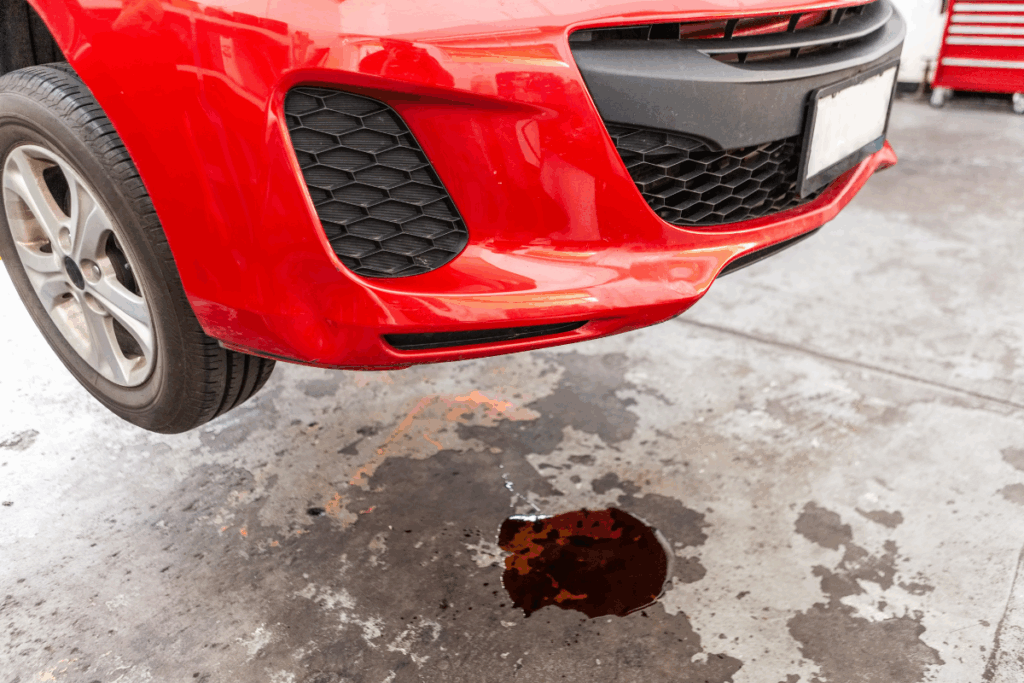
Oil is essential for keeping your diesel engine lubricated and running smoothly. If you spot oil stains under your truck or see the low oil pressure warning light on your dash, it’s not something to brush off. An oil leak can be caused by damage to the cylinder liner, so if leaks persist, the cylinder liner should be inspected as part of your diagnosis.
Low oil pressure can be caused by worn engine bearings, a failing oil pump, a blocked oil filter, or cracked seals and gaskets. Any of these can reduce oil flow and increase friction inside the engine.
Driving with low oil pressure puts your engine at serious risk. It can lead to overheating, metal-on-metal contact, and catastrophic failure. If you notice any signs of a leak or a drop in oil pressure, shut the engine off and get it checked right away.
8. Check Engine Light or Warning Indicators

Modern diesel engines come with advanced diagnostics. If the check engine light comes on, it’s your truck’s way of asking for help.
Even if your truck seems to run fine, a check engine light means something’s off behind the scenes. Catching it early can mean the difference between a simple fix and an expensive repair down the road.
Warning lights may indicate:
- Emissions issues (like DPF or EGR faults)
- Sensor malfunctions
- Fuel system errors
- Overheating or oil pressure problems
Get the fault code read as soon as possible. Early action can prevent a full breakdown.
What To Do If You Notice These Signs
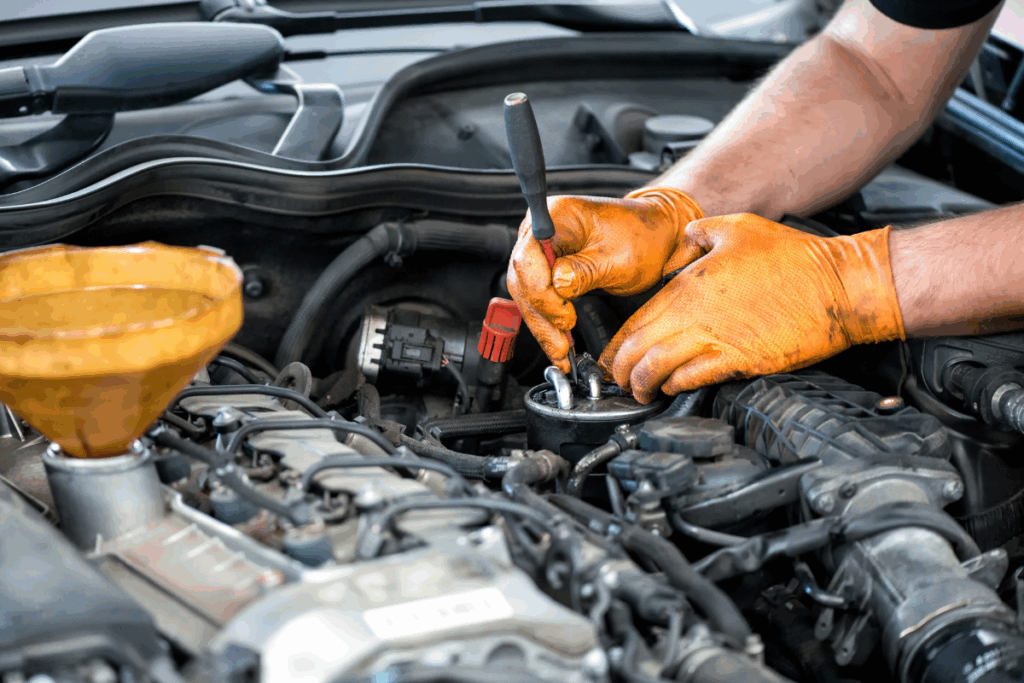
If your diesel is showing one or more of these signs, don’t wait. Continuing to drive a failing engine can cause long-term damage and sky-high repair bills. Regular diesel engine maintenance is crucial for preventing problems and detecting issues before they become severe.
Prompt diesel engine repair can prevent minor issues from escalating into major repairs or even total engine failure. For fleet vehicles, early intervention is especially important to avoid downtime and costly repairs. Here’s what you should do to protect your engine and your investment.
Schedule a Diagnostic Check
The first step is to book a professional diagnostic check. Modern diesel engines rely on electronic controls, so scanning the engine control module (ECM) for fault codes can quickly identify diesel engine problems. Early diagnosis saves time and money by addressing issues before they escalate.
Inspect Filters and Fluids
Regularly check your fuel and air filters, as well as engine fluids like oil and coolant. Dirty filters restrict flow and reduce engine efficiency, while low or contaminated fluids can cause overheating and wear. Keeping these components in good condition helps maintain performance and prevents damage.
Look for Visible Leaks or Smoke
Take a close look around your engine bay for any oil or coolant leaks. Also, watch the exhaust for unusual smoke—black, blue, or white smoke can signal different engine troubles. Spotting leaks and abnormal smoke early can help you avoid bigger problems.
Listen for Unusual Noises
Pay attention to any knocking, clunking, or hissing sounds while your engine is running. Strange noises often indicate mechanical issues like worn bearings or turbocharger problems. Noticing these sounds early allows for timely repairs.
Trust the Experts at A1 Diesel
At A1 Diesel, we specialize in diesel engine diagnostics and repairs. Our skilled technicians use advanced tools to find the root cause of your engine’s issues and fix them efficiently. With our help, you can keep your diesel engine running smoothly and avoid unexpected breakdowns.
Final Thoughts
Knowing the early signs of diesel engine failure can save you a major headache. Whether it’s smoke, noise, or poor fuel economy, these symptoms shouldn’t be ignored.
Ready to Keep Your Diesel Engine Running Strong?
Don’t wait until small issues turn into costly repairs. Contact A1 Diesel today for expert diagnostics and reliable diesel engine repairs. Our experienced team is here to help you get back on the road quickly and confidently.
Call us on (+233) 501 088 888 now or schedule your service online!

2 Comments
Undeniably believe that which you stated. Your favorite reason appeared
to be on the net the easiest thing to be aware of. I say to you, I certainly
get irked while people think about worries that they just don’t know about.
You managed to hit the nail upon the top and also defined out the whole
thing without having side-effects , people could take a signal.
Will likely be back to get more. Thanks
Thank you so much for your thoughtful message. I truly appreciate your kind words and the time you took to express them. It means a lot to know that the message resonated with you. Looking forward to having you back again—there’s always more to share!